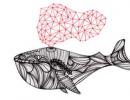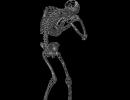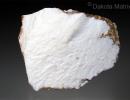Indicate to which group specific real. Concrete and abstract nouns. Grammatical features of abstract nouns
State budgetary educational institution
Initial vocational education
Professional Lyceum No. 13
Independent work in the disciplines "Russian language" and "Literature"
(I course II semester)
Compiled by I.V. Kosolapova
Ufa, 2013
Dear students!
Greetings to all those who "slept" in the classroom for a whole year. This methodological guide contains tasks for independent work. In the Russian language, the selected option is performed fully ... Completed assignments are submitted for consultation (May, June).
Conditions of certification in the discipline "Russian language":
No debts;
A positive mark for the final dictation.
Conditions of certification for the discipline "Literature":
No debts for "checkpoints";
Availability of a notebook with lectures;
Poem (by heart);
Positive mark for the final test.
Consultation schedule for May
| date | Time | Groups |
| May 20 | 15:30 | Group 11, 14, 15 |
| 22nd of May | 15:30 | Group 8, 9, 10 |
| May, 23rd | 15:30 | Group 11, 14, 15 |
| May 24 | 14:00 | Group 8, 9, 10. |
| May 27 | 15:30 | Group 11, 14, 15 |
| May 28 | 15:30 | Group 8, 9, 10 |
| May 29 | 15:30 | Group 11, 14, 15 |
| May 31 | 14:00 | Group 8, 9, 10. |
Good luck!!!
Lecture notes: "Noun",
"Adjective"
NOUN
A noun is a part of speech; it answers the question who? what? (who? what ?, etc.), includes words with a subject meaning in a broad sense.
Lexico-grammatical categories:
1. Common nouns and proper:
a) Common nouns nouns serve as generalized names for objects: country, desk, river handle, etc.
b) Own nouns serve as names for single objects: Russia, Masha, Amazon.
2. Animated and inanimate:
a) Animate nouns are used to name living beings: man, bird, fish
b) Inanimate nouns serve as the name of objects, phenomena and concepts that are not reckoned among living beings: lantern, table, desk.
Exception: animated nouns include the words - dead, deceased, doll, addressee, matryoshka, puppet, the names of some card and chess pieces (queen, jack, king, trump card, ace, bishop, queen); figurative nouns - mattress,
Inanimate are: people, crowd, army, flock, character, microbe, bacteria, larva, embryo, pupa.
Specific, collective, abstract, material
a) specific nouns call things and phenomena - chair, socks, rain.
b) abstract nouns - they name actions, signs, states - whiteness, running, sadness, blue, laughter.
v) collective nouns denote a collection of objects or persons as a whole - youth, students, foliage, old stuff.
G) real nouns denote a substance or a homogeneous mass - peas, sand, milk, cream.
Gender of nouns: masculine- horse, boy, chair;female- mom, pen, girl;average- village, hay, field ; general - denote a face
male and female: well done, colleague, sweet tooth.
Undeclinable – words of a foreign language origin, for these words we define the gender as follows: masculine gender- names of males , animals, birds - stickman, kangaroo, flamingo;feminine- names of female persons - lady, madam;neuter gender – inanimate nouns - muffler, subway.
For proper names, the genus is denoted by the generic word. Sochi - m.r. (city); Ontario - Wed b. (Lake).
Number. Nouns change in numbers - book - books. However, in Russian there are words in the form of only the singular - student body milk; or just plural - scissors, gate.
Declension and Cases.
I sc. - sush. r. and m.r. with the ending -а (-ya) - wall, boy, uncle and n. general gender into -а (-ya) bully.
II floor - noun m.r. with a zero ending and Wed p with the ending -o (s): sofa, village, field.
III floor - noun r. with a zero ending: mouse, be quiet.
Divergent nouns: path, burden, tribe, stirrup, flame, banner, udder, time, flame, seed, name, crown.
Morphological parsing
Among common nouns, specific and abstract words are distinguished by their lexical meanings and grammatical properties.
Concrete nouns denote objects that exist as separate instances or individuals. They can be invoiced: house (one, two, three ... houses), cow (one, two, three ... cows), cook (one, two, three ... cooks), blow (one, two, three ... blows ). Compatibility with cardinal numbers and variability in numbers ( house - houses, cow - cows, cook - cooks, blow - blows) are the main features of specific nouns.
In the composition of specific nouns, a special group is formed by single nouns (singulatives). They designate one instance of something, isolated from homogeneous objects. Wed: peasant - peasantry, student - students, rag - rags, leaf - foliage... Here singularity is expressed in the opposition of singulatives to collective nouns. Unity is also expressed with the help of special suffixes -in (a), -ink (a): straw - straw, pearl - pearl; dew - dewdrop, fluff - fluff, snow-snowflake and etc.
Abstract (abstract) nouns denote abstract concepts - properties, qualities, as well as actions and states: courage, novelty, yellowness, honor, struggle, reading, joy, etc. The semantics of abstract nouns does not allow the idea of counting. They are used only in the singular. Plural forms are formed only in those cases when they denote specific manifestations of abstract qualities and actions. Wed: feeling of joy and small joys, joys of life (events that cause joy); the beauty of a girl and the beauty of nature (beautiful places); book reading and pedagogical readings, Vinogradov readings. In concrete meanings, abstract nouns are combined with cardinal numbers, for example: Now we had three concerns: the first was to find water, the second was to find fuel, and the third was to find protection from the wind (Arseniev). I know four sweet things (Bryusov).
In their basic meanings, abstract nouns, as a rule, are not combined with quantitative determinants. However, some of them can be defined using indefinite quantitative words ( little joy, a little patience, a lot of attention, he has done a lot of troubles, he said a lot of stupid things and etc.).
Abstracted nouns are formed using the suffixes -st (-is), -k (a), -from (a), out (a), -ev (a), -ii (a), -ni], / not; - , -rel (i), -stv (o), -izm, -atsi (i), etc., for example: endurance, sharpening, darkness, novelty, blue, lowland, disarmament, development, crush, tenacity, formalism, orientation.
Grammatically specific are nouns that can be combined with quantitative (and collective) numerals and determined by ordinal words ("first", "second", etc.): "four steps", "wolf and seven kids", "ride in the first carriage ". Concrete nouns in the vast majority of cases have the form of both numbers. The exception is nouns known only in the plural form, i.e. words such as collars, jeans, tights, as well as the names of the so-called single items - Pskov, Chomolungma and so on. (see also below about them).Real, collective and abstract nouns belong to grammatically non-specific nouns (all these categories of words are not combined with quantitative and collective numerals, with ordinal words and have the form of only one number).
Real nouns are words that name types of food products and semi-finished products (cream, sour cream, cottage cheese, yeast, pork, soup, cereals, cookies), types of crops (wheat, millet, garlic, carrots, radishes), chemical elements and their compounds, alloys, etc. (iron, magnesium, aerosol, acid, alkali), various materials (acrylic, fiber, suede, glass, parquet, cellophane), medicines (aspirin, validol, corinfar), food and other waste (sawdust, sawdust, slop) and etc.
In addition to the above general features characteristic of all non-specific nouns, real masculine nouns also have the ability to have variant endings in the genitive case (singular): "a kilogram of sugar and sugar", "a pack of tea and tea", etc., and some - in the prepositional case: in smoke and in smoke, in honey and honey (see about them below).
Collective nouns are words that call the totality of persons homogeneous in some respect (agents, generals, fools, nobles, mafia, youth, flock, relatives, humanity), animals, birds, insects, etc. (crows, gnats, animals, birds), "objects" of the plant world (foliage, needles, birch, jungle), household items (linen, shoes, furniture, dishes), products of activity (writing, non-walking - about a slow-moving product), substances (drugs), etc., presented as a whole. Among them, nouns stand out for which collectiveness is reflected "externally" - in the appropriate suffix: professors, generals, youth *, mosquitoes, foliage, midges, pine forests, poor peasants, humanity, etc. Another group is made up of nouns, whose collective meaning is expressed only semantically: nobility, vile, needles, jungle, mafia, curls, finance, etc.
* All collective nouns containing the collective suffix have only singular forms. The correct use of such nouns assumes that not only they themselves, but also the words that agree with them and the words replacing them in the composition of a complex sentence ("he", "which"), would be in the same form. Therefore, there is a mistake in phrases like the following: "Why don't you take measures to create conditions for young people for cultural, meaningful leisure, so that they grow [it is necessary: it grows] spiritually" (Amur, pr. 1964. Apr. 10) ...
Note. Nouns of the type collective, people, detachment, regiment, herd, flock, heap, grove, etc., similar in semantics, are not collective. Calling an object consisting of a multitude of units, these nouns refer to grammatically specific ones, since they denote the objects to be counted and therefore can be used with quantitative and collective numerals, with ordinal words and have the forms of both numbers: "two youth groups", "the first detachment", "flocks of migratory birds".
Abstract (or abstract) nouns are words that name a quality, property ("the fragility of porcelain", "tactfulness of behavior", "depth of feeling"), any feeling, state (annoyance, pain, coldness, admiration, health), action, movement of someone or something (flashing, running, debating, elections, marathon, assembly), etc. Abstracted masculine nouns, like real ones, can have variant endings in the genitive case (singular): "enter without noise" and "how much noise (noise) because of trifles!", "From fear" and "from fear" (see . about them below).
The assignment of nouns to one or another semantic-grammatical category is closely related to polysemy. So, in all the examples suggested above, nouns were given in their direct meanings. In figurative meanings, belonging to the category most often changes (and, consequently, the grammatical properties of words in these meanings may also change). For example, the noun import in its direct meaning ("import of goods into the country from abroad") is abstract, but in the context below, where it is used figuratively (metonymically), it is collective (its grammatical properties remain the same): home ... Chandelier - crystal, parquet flooring, wall "Christina", one import "(Lit. gas. 1980 No. 36). The way out, when it comes to action (that is, about the direct meaning), is an abstract noun, but when we mean the place through which they go out, i.e. figurative (metonymic) meaning, it is specific (and acquires the appropriate grammatical properties: it can be combined with a cardinal, ordinal word and have the forms of both numbers): "There were three exits from the dining room: one to the large rooms, the other to mine, and the third led to the library "(Ven.). The noun oak in the literal sense (as a designation of a large deciduous tree) and in the figurative metaphorical ("stupid person") refers to the concrete, and in the figurative metonymic ("the wood of this tree") - to the material (with all the ensuing grammatical "consequences" ): "the cabin is finished with oak", etc.
Specific nouns are those that can be combined with cardinal (collective) and ordinal numbers. A cognitive look at concrete, abstract, material and collective nouns allows us to identify the purpose in the language of each of these categories of nouns. 1124. Among proper names there are: 1) proper names in the narrow sense of the word and 2) names.
Real nouns are the names of substances homogeneous in their composition, amenable to division, measurement, but not counting (a piece of sugar, a liter of milk). Some nouns, depending on the meaning that appears in their context, can be considered either real (a silver bracelet) or collective (silverware).
Lexico-grammatical groups of nouns
Therefore, specific nouns are the names of objects (leaf, tree, table), specific actions (jump, flight), facts and phenomena of reality (lesson, duel). Most of these nouns have the form of both numbers. The only exceptions are the names of paired items: trousers, scissors.

Nouns like "regiment", "flock", "grove", "pile", similar to them in semantics, are not collective. Task 2. To understand how you figured out these nouns, give 3 examples for each type. Make suggestions with them, illustrating the application of the knowledge gained.

Task 4. Select nouns from the text and indicate those that help paint the picture. Then write out the nouns with diminutive suffixes. Now indicate the nouns that color the picture. Why can the misuse of these words in speech lead to unexpected and sad for diffuse consequences?

Material nouns are physical substances (masses) of a specific shape and size. Real nouns are useful as metaphors for ideas, helping the interlocutors to correctly understand the concepts being conveyed.
Text of the scientific work on the topic "Concrete, abstract, material, collective nouns and their role in reflecting reality." Scientific article in the specialty "Linguistics"
Specific nouns denote phenomena or objects of reality, exist in the form of separate instances or individuals. Plural forms are formed when they denote specific manifestations of abstract qualities and actions. It is impossible to refer to collective nouns as people, group, collective, platoon, regiment, herd, herd, heap, constellation.

Specific to them. noun - lexical and grammatical category of nouns denoting objects and phenomena of reality, amenable to counting: lesson, day, note, flower, TV.
Collective nouns do not include words such as platoon, group, herd, detachment, etc., denoting some part of the total and amenable to counting (two platoons, three groups).

Of greatest importance for semantic-syntactic research is the opposition of animate and inanimate objects and nouns expressing them. Countable nouns can optionally be defined as potential nouns if they denote objects that have or are considered to have their own internal energy.
The cognitive level presupposes the consideration of the lexical and grammatical categories of nouns as a means of categorizing objects of reality. Real nouns denote substances of a homogeneous composition that can be measured, but not counted. They can be divided into parts, each of which has the properties of the whole. Collective nouns denote a collection of persons, living beings or objects in the form of a whole, for example: peasantry, students, headman, children, foliage.

See what "real nouns" are in other dictionaries:
The singular number of a concrete noun ... Prototypical collective nouns name objects that are significant only in their totality and acquire a new quality in this totality. In parallel, the establishment of a secondary (external, linguistic) categorization is taking place; in our case - the original lexical and grammatical affiliation of the noun.
Analysis of the linguistic material allows us to detect the central and peripheral directions of the lexical and grammatical interaction of nouns. A feature of the concretization of collective nouns is the fact that polycategorization among them significantly prevails over recategorization.
In linguistic literature throughout the twentieth century, the categories of concrete, abstract, material and collective nouns are characterized in two main aspects. The border between proper names and common nouns is flexible. Specific nouns name specific objects and phenomena of reality: a thunderstorm, a table, a person. Real nouns denote physically real objects and substances (including people and animals).
Abstract nouns denote various abstract concepts, qualities, actions, states in abstraction from the bearer of the attribute and the producer of the action: beauty, dexterity, bravery, development, enthusiasm, mowing, elasticity, slush, whiteness, cold, warm.
Grammatical features of abstract nouns
1. Do not form number forms.
There can be only singular or only plural. In other words, it is.
3. Some abstract nouns can be combined with words lot/few and at the same time stand in the singular form: a lot of attention, a lot of joy, little grief.
- Lot, a lot of restlessness
- It will bring it with it.
- (P. P. Ershov)
Derivative suffixes of abstract nouns
2. Abstract nouns formed with the help of special suffixes.
| -spine- | dare spine , brave spine , wise spine |
| -there is- | fresh there is |
| -st- | boasting st O, prowess st O |
| -rev- | real rev , hero rev , patriot rev |
| -stuj- | pleasure sti[j] e |
| -from- | kind from a, shir from a |
| -out- | white out a, crooked out a, new out a |
| -enj- | endure nenie, imagination nenie |
| -anj- | mandate ane, elm ane |
| -tyj- | develop ty [j] e, event ty [j] e |
| -acyj- | orient ation, nomine ation |
Unmotivated nouns make up a small part of the abstract: sadness, passion, sadness, trouble, cosiness, torment, grief, mind.
The plural forms can be used to denote specific manifestations of abstract qualities: cold - winter cold a , depth - sea depths s , beauty - beauties s nature, reading - Pushkin readings I am , joy - joy and life.
Valgina N.S., Rozental D.E. and Fomina M.I. believe that at present, abstract nouns tend to expand the scope of the plural forms: agreement, reality, heterogeneity, given. This also applies to verbal names with the meaning of action: sales, watering, shooting, emissions.






